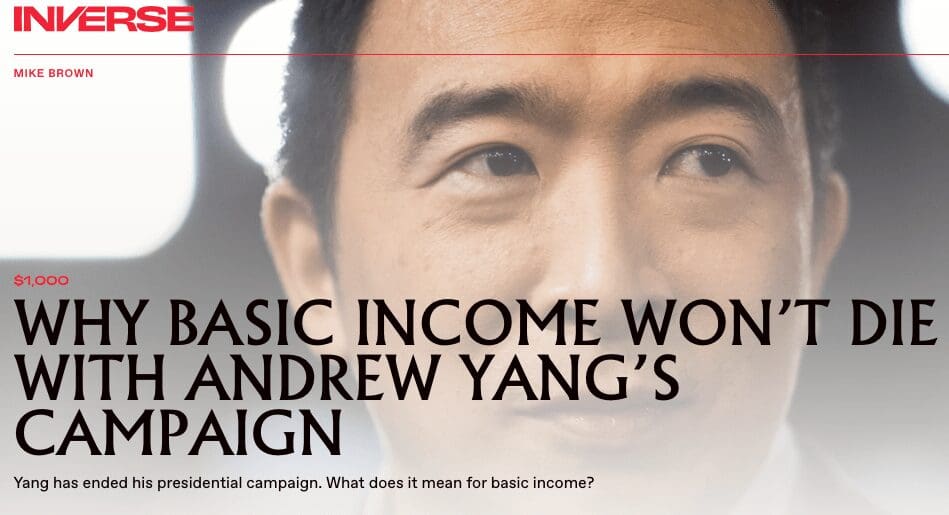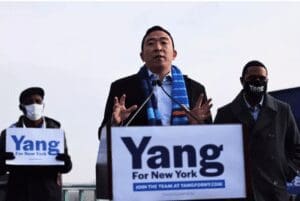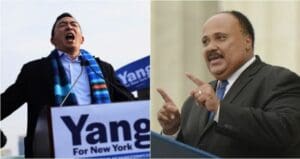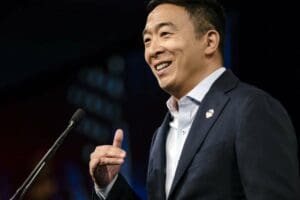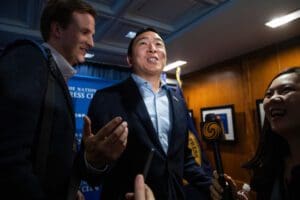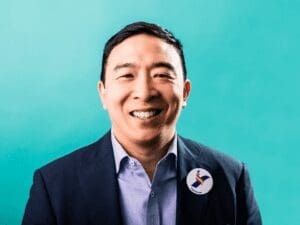Andrew Yang, the 45-year-old firebrand of the universal basic income movement, ended his campaign for the American presidency Tuesday evening.
In a post-announcement email sent to his supporters, the entrepreneur praised his “Yang Gang” of dedicated supporters while declaring the movement would continue to thrive:
I stand before you today and say that while we did not win this election, we are just getting started. This is the beginning. This movement is the future of American politics. This movement is the future of the Democratic party.
The tech entrepreneur, who had never run for public office in his life, left an impressive mark on the race. The long-shot candidate filed to run in November 2017. In April 2018, the same month his book The War on Normal People hit shelves, Yang told Inverse that he was calling for a $1,000-per-month Freedom Dividend for every adult over the age of 18. Yang’s call for a basic income was aimed at American workers, many of who had lost their jobs as workplaces increasingly employed A.I., robots, and automation to replace humans.
Yang’s campaign is over, but supporters of the basic income movement remained positive in the hours following the announcement.
Here’s GUY STANDING, a founding member of the Basic Income Earth Network, and a research associate at SOAS University of London:
“I think Andrew Yang deserves congratulations for courageously advancing a cause in which he believes, and for helping to legitimize basic income in the United States.
“He has been a credible voice and a welcome addition to progressive thinking about to respond to the unedifying trend to populism and uncouthness epitomized by Donald Trump and his circle.”
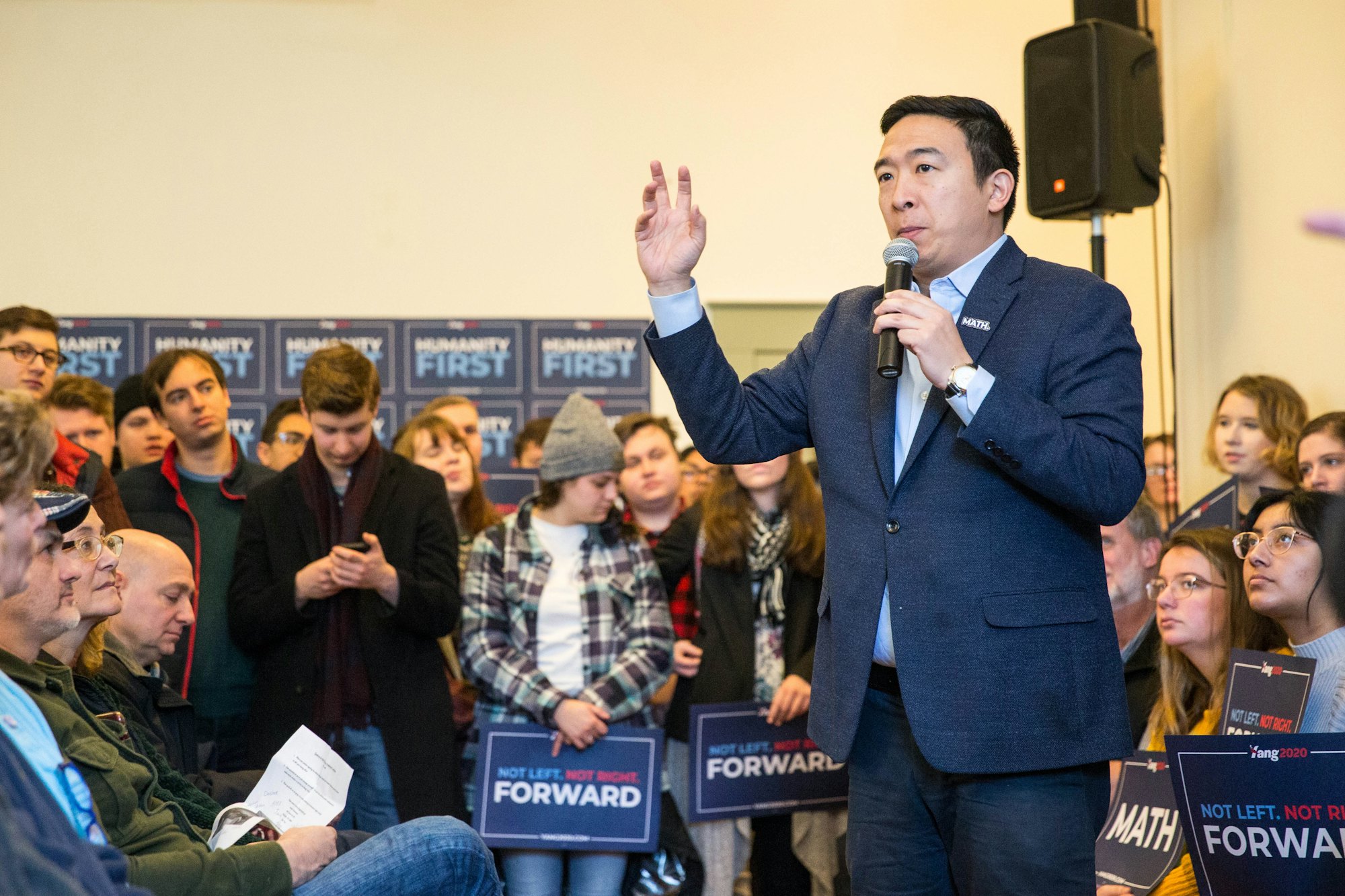
Basic income advocate SCOTT SANTENS declared in a Facebook post that the Yang Gang “is only getting started.”
Political candidate JAMES FELTON KEITH comments on Twitter that “we can come together, be inclusive, and move forward.”
SAM GREGORY, chair of UBI Lab Sheffield, tells Inverse this is the beginning, not the end:
“This is just the beginning of a worldwide movement exploring the potential of a Basic Income. Yang’s campaign has succeeded in moving UBI into the center of American political debate. His presidential run has given this previously little-known idea blockbuster coverage in the American media, and although Yang’s campaign is over, the interest in UBI will only grow stronger.”
Despite slim odds from the start, Yang’s campaign thrived impressively. He outlasted big-name Democrats like Cory Booker, Kamala Harris, Beto O’Rourke, and Bill de Blasio. Yang was propelled by a February 2019 appearance on The Joe Rogan Experience, plus an increasingly-large groundswell of donors that numbered 430,000 by the end. In March 2019 he was polling less than one percent, but in January 2020 he broke past four percent and out-polled candidates like Amy Klobuchar and Tulsi Gabbard.
Yang’s announcement was perhaps not unexpected, however. In this month’s chaotic Iowa caucus, Yang won just over one percent of State Delegate Equivalents, placing him sixth without winning a single county. Business Insider reports that the campaign suddenly laid off 100 employees after the result. An email to supporters warned that another missed fundraising goal would mean the campaign could not “continue contending at the same level.” He still appeared, however, in a debate just days before the New Hampshire primary.
In his post-announcement email, Yang cited a number of wins from the two-year campaign. Popular support for universal basic income, he claimed, has reached 66 percent among Democrats and 72 percent among voters aged 18 to 34. Yang also praised the campaign for putting his policy into action, giving 13 families $1,000 per month for one year. The Fassi family in New Hampshire, one of the recipients, praised the policy and put it toward college bills.
Indeed, Yang’s campaign coincided with a marked rise in support for basic income. A poll by Hill-HarrisX found in February 2019 that 43 percent of registered voters supported the idea versus 57 percent opposed, but by September 2019 the same firm found 49 percent support versus 51 percent opposition.
But can the movement outlast the campaign? Parallels can be drawn to Steve Forbes’ 1996 and 2000 campaigns for the Republican nomination. Forbes ran on a similarly policy-focused platform, advocating for a flat tax. The New York Times dismissed him in 1996 as “a bit of a flat campaigner.” But Forbes’ failure didn’t kill off the idea entirely: it returned to the spotlight in the 2010s thanks to Ron and Rand Pauls’ presidential campaigns, and a 2015 YouGov poll found 39 percent in favor.
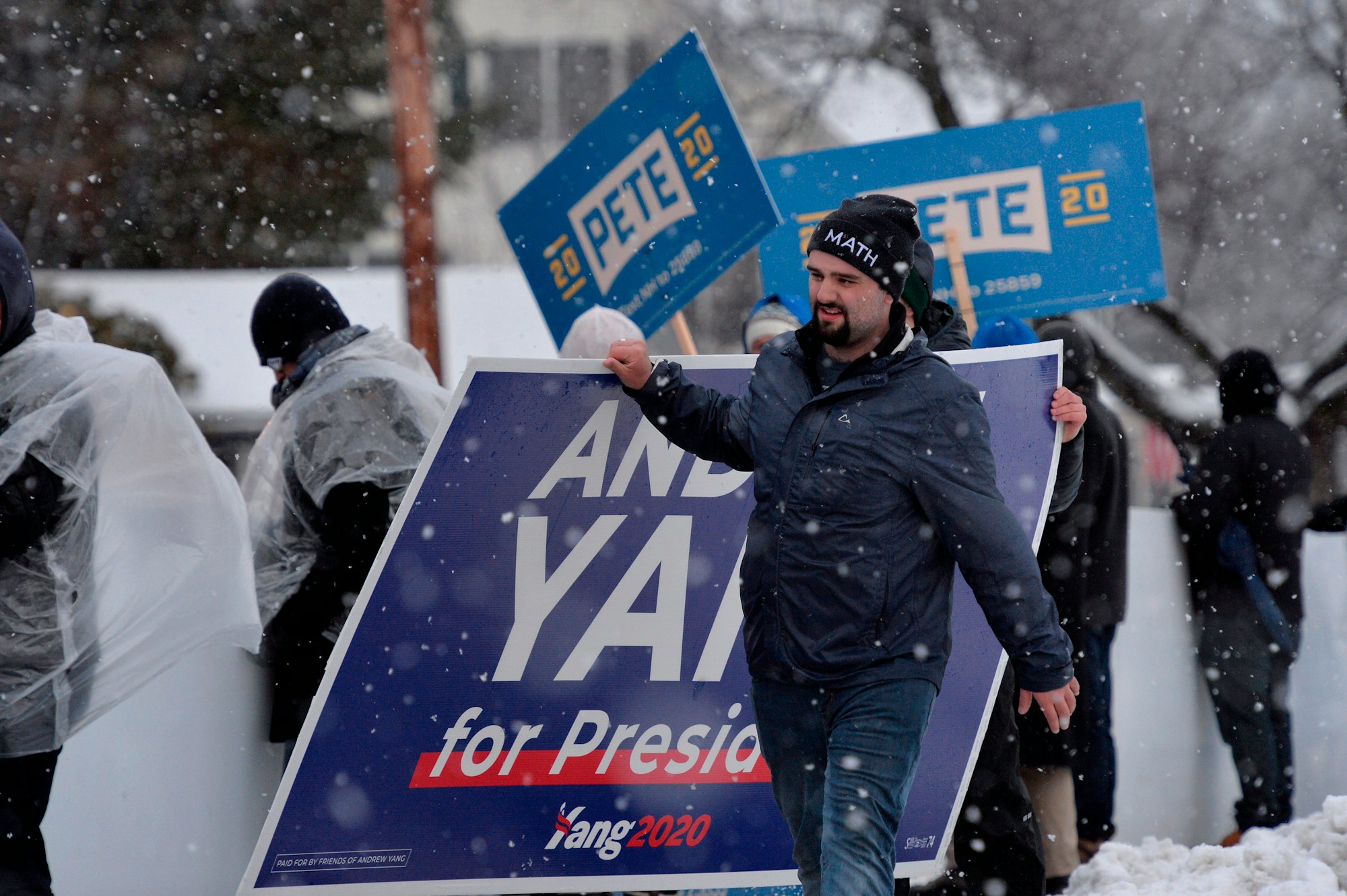
As with many political ideas, its adoption may not rest on one politician’s campaign, but on wider social and historical trends.
DANIEL ZAMORA VARGAS, a sociology professor at Belgium’s Université Libre de Bruxelles who is currently working on a book about the global history of basic income, tells Inverse that the proposal can trace its roots to Milton Freidman’s negative income tax in the 1940s. It remained a fringe idea until the 1960s, when automation and poverty led to widespread support. Although George McGovern and Richard Nixon failed in their bids to implement the idea, Zamora argues that basic income “never really disappeared since the mid-sixties – just traveled around the world, grasping the public opinion when facing economic crisis.”
Indeed, it’s this characteristic of the policy that could lead to its long-term staying power. Automation is projected to kill 800 million jobs globally by 2035. And while the United States Census shows just 25 percent of young American men earned less than $30,000 per year in 1975, that figure had risen to 41 percent by 2016. Smarter robots and a more precarious workforce could keep a proposal like UBI as a key feature of political discourse.
“[Yang’s campaign] surprisingly attracted a lot of people and really created a lot of enthusiasm among millennials,” Zamora says. “He definitely raised a lot of important issues whether or not we think UBI might be the right answer. As long as these problems are not dealt with, UBI will still be there.”










